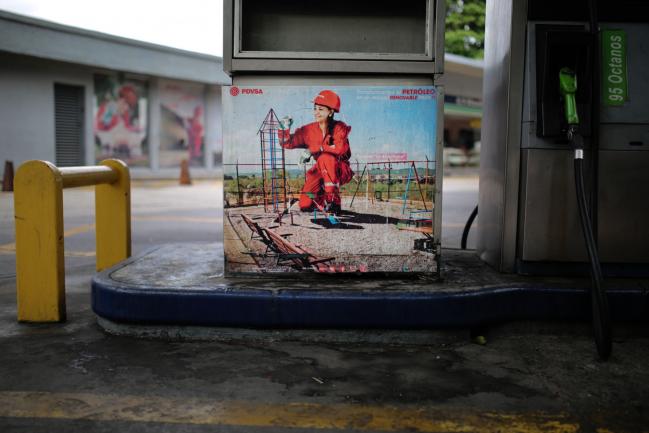(Bloomberg) -- With talks intensifying over Venezuela’s state oil giant potentially missing a payment in late October on the nation’s only bond not currently in default, Ashmore Group Plc has more at stake than anyone else.
The London-based investment firm holds more than 51% of Petroleos de Venezuela’s 2020 notes, followed by BlackRock Inc (NYSE:BLK). and T Rowe Price Group Inc (NASDAQ:TROW)., according to data compiled by Bloomberg. Ashmore boosted its holdings last year as Nicolas Maduro’s government began defaulting on some $11 billion in debt. The administration has stayed current on those bonds because they were backed by collateral in Houston-based refiner Citgo Holding.
At the beginning, the bet paid off handsomely: PDVSA’s 2020 notes rallied to 96 cents on the dollar in late January from a low of 62 cents in August 2017. But since then, a series of blows have sent prices tumbling. The bonds were quoted Wednesday around 50 cents on the dollar, according to three people familiar with the matter. The bid-ask spread for the notes has been so big that some data providers stopped publishing daily price quotes last month.
The latest setback came Tuesday as the attorney general for Juan Guaido, recognized by the U.S. and more than 50 nations as Venezuela’s rightful leader, signaled that PDVSA may default on the $913 million payment for its 2020 bonds due October 27. That further tainted investors’ views on notes already hit by a U.S. ban on secondary trading and JPMorgan Chase (NYSE:JPM) & Co.’s decision to reduce the country’s weight in its benchmark bond indexes to zero.
A spokesman at Ashmore didn’t respond to phone calls and emails seeking comment. An outside spokeswoman for Ashmore declined to comment, as did spokeswomen at BlackRock and T Rowe.
The three investment firms rank among the five largest reported holders of all PDVSA debt, according to data compiled by Bloomberg. Filings from the first two quarters of the year show Ashmore held about $850 million in face value of the PDVSA 2020 bonds.
In case of a default, bondholders still have a shot at the collateral on the 2020 bonds through 50.1% of Citgo Holding shares. Yet Donald Trump’s executive order Monday complicated that process. Advisers to Guaido and some investors say that the measure would prevent holders of the debt from foreclosing on the shares, setting up a potential legal showdown later this year.
Attorneys at Cleary Gottlieb Steen & Hamilton, which is advising a Venezuela creditor group, have argued the opposite.
“We believe that execution on the collateral securing the 2020 bonds in accordance with their terms remains authorized,” Cleary Gottlieb lawyers led by Paul Marquardt wrote in a report on Wednesday.
